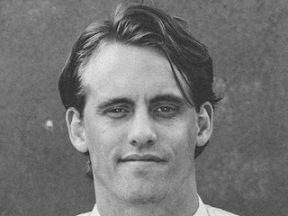Lauren Johnson says high-performing entrepreneurs have similar characteristics as professional athletes. Both have mental traits that lead to inevitable success. She first observed those qualities when working for the New York Yankees, teaching mental performance to accomplished baseball players.
Johnson now consults with executives, entrepreneurs, military members. She told me, “I teach people how to develop mental skills to be their best regardless of circumstance.”
She and I recently discussed the importance of confidence, actions, habits, and more.
Our entire audio conversation is embedded below. The transcript that follows is edited for length and clarity.
Eric Bandholz: Tell us what you do.
Lauren Johnson: I work in the mental performance world. I studied sport and performance psychology, and I consult with all sorts of individuals — from pro athletes to CEOs, executives, military personnel, and everyone in between. I teach people how to develop mental skills to be their best regardless of circumstance.
Bandholz: What do you observe about high performers?
Johnson: I started in sports. I worked for the New York Yankees for four years. There are many parallels between professional athletes and the business and entrepreneurial world. Many qualities that make a major leaguer also make an elite CEO. What makes a Gold Glove winner are the same things that make incredible startup entrepreneurs.
First, they don’t feel sorry for themselves. Pro athletes, when they make a mistake, they may be upset, they may be frustrated, but they don’t pout and beat themselves up for too long. They recognize it, and they respond quickly. I’ve noticed the same with entrepreneurs. They don’t feel sorry for themselves. Also, high-performing entrepreneurs are not afraid to take risks. They understand that, win or lose, they can gain something from it. They realize that there’s much to gain from failure.
Bandholz: How do high performers develop that confidence not to feel sorry for themselves and be comfortable in who they are?
Johnson: Whenever I think of confidence, I think of waterfalls. Waterfalls all have a source, sometimes multiple water sources, that come together to create the waterfall. When it comes to confidence, the question I often ask is, “What are your sources of confidence?”
What I notice in underperformers or new entrepreneurs is that their sources of confidence are often outside of their control. And when your confidence source is outside of your control, you’re controlled by it.
So the first thing is to recognize where your sources come from and whether they are within your control. And, related to that, confidence comes from our ability to do something well. And that comes from repetition. The best athletes in the world didn’t become that way from talent alone. It was because they put the time into repeating those movements or actions. That’s how they became better. And that’s how we develop mental skills. It’s little muscles in our mind that we have to exercise daily.
Sources of confidence and repetition — those are the two things I would start with.
Bandholz: How can entrepreneurs shift how they see things to achieve the success they’re capable of?
Johnson: It often comes down to their belief system. Here’s a story. When I worked for the Yankees, I traveled to minor-league affiliates. For one affiliate in particular, I knew every player and coach well. I was sitting in the dugout, and I asked this player a question. He was very short with me. I needed to do a better job of developing a relationship with him. So throughout that weekend, my goal was to spend more time with him, to know him better.
But it didn’t matter what I did. Anytime I asked a question, he was just really short with me. Finally, I got to the field early, and he’s there, hitting in the batting cages. I walked up to him and said, “Can I ask you a question?” He’s like, “What you got?” I said, “Why is it that you’re short with me when I ask a question. I want to make sure I haven’t said something that offended you.”
He said, “That’s not it. I’m not very good at speaking. When I was in elementary school and was asked to say or read something out loud, I struggled because I stuttered. My teacher told me, ‘You’re not very good at speaking.'”
And then I asked him, “Who’s telling you that now?” He said, “I am.” And so that’s very important. Our identity equals our belief plus our actions. His belief is he’s not good at speaking. Every time he took the action of not speaking, he reinforced that belief. And over time, when we reinforce our beliefs with actions, that becomes our identity.
So we can rearrange the formula and ask, “Who do we want to be? What identity do we want to have?” Belief equals the identity — who you want to become plus your actions. So I asked my player, “Who do you want to be?” He said, “I’ve always wanted to be the person that raises their hand in group meetings.” I said, “If that’s who you want to be, what action are you going to take?”
So I prepped him for every team meeting. And at the end of each one, I would pose questions to the group. His hand would go up first. And after a while, I didn’t have to prep him anymore because his belief took over. His actions supported it. So, as James Clear, the “Atomic Habits” author, says, every action you have casts a vote for who you want to be.
Bandholz: I love James Clear and what he preaches. It’s perfect for everything in life.
Johnson: Yes. I love “Atomic Habits,” his book. Everyone listening to this should buy it. It dives into the mechanics of habits. The reason I love it is because he talks about habit design. If we break that down further, it’s all about how behaviors interact with the way we think and feel, and our outcomes. I love it. He wrote the book based on what worked for him and his research.
Bandholz: He emphasizes tiny accomplishments that compound — the 1% things. As I’m building Beardbrand, it’s been the same thing. It’s like, “How can we get better at the things that we do well?” Rather than seeking a nuclear explosion, we’re looking for that 1% improvement every day. It’s very powerful.
Johnson: Going back to your first question, what are some things that incredible entrepreneurs and athletes have in common? One of them is they recognize that it’s those small things that add up over time. It’s the reason they are the best. They endure the boredom of consistency. Consistency is not sexy, but it’s often what leads to long-term results. Mentally tough people are not more talented. They’re just more consistent. And they’re willing to do those mundane, boring things every day.
But they are stringing together tiny improvements. The champion isn’t made on the day he wins the World Series. He’s made from all the days leading up to it.
Bandholz: How can listeners reach out to you, get ahold of you?
Johnson: My website is LaurenJohnsonandco.com. I’m also on the major social channels: LinkedIn, Twitter, Instagram. I post to my YouTube channel regularly.




